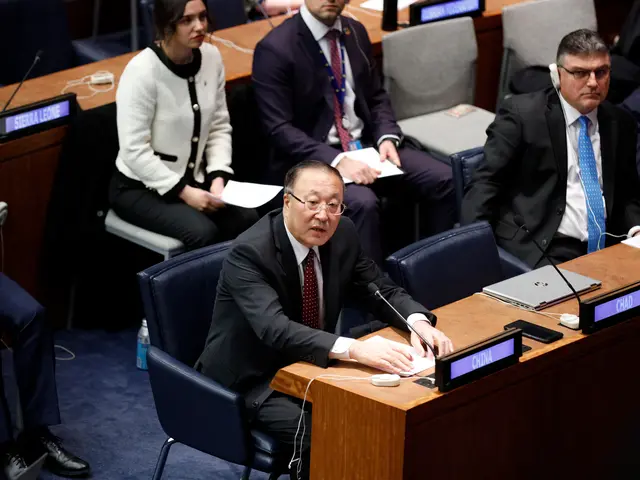The UN Security Council will hold a debate on peacekeeping operations on March 24 with the participation of troop and police contributing countries during China's presidency.
Zhang Jun, China's permanent representative to the UN and the council's president this month, announced Monday the holding of the debate during his briefings to UN member states, press and civil society on the work of the council.
He noted peacekeeping operations are facing more complex and difficult conditions, which require improved capacity of troop contributing countries.
As a major troop contributing country and the second largest financial contributor, he said, China has been actively engaged in peacekeeping operations and supportive of Action for Peacekeeping (A4P), a UN initiative that aims at more effective response to new challenges in an evolving situation.
The theme of the debate will be "UN peacekeeping operations: Better capacity building, more safety and security," and troop and police-contributing countries are invited to make statements, according to Zhang.
"China will work with other parties to galvanize more attention to UN peacekeeping and secretary-general's A4P initiative," he said. "There should be more input to peacekeeping operations and concrete actions to help troop and police-contributing countries strengthen capacity building and ensure the safety and security of frontline peacekeepers."
In addition, Zhang said the council will work to promote political settlement of regional hot issues and maintain international fairness and justice in March, covering hotspot issues such as Syria, Libya, Palestine, South Sudan and Yemen.
The Chinese UN envoy pledged China will work with other council members to urge relevant parties to increase dialogue and consultation, resolve disputes peacefully and make every effort to achieve progress in seeking political settlement.
The Security Council was established by the UN Charter. Its primary responsibility is to maintain international peace and security.
The council has 15 members: the five permanent members, and 10 non-permanent members elected for two-year terms.
The council's presidency is a capacity that rotates every month among its 15 members.
(CGTN)
 简体中文
简体中文

